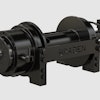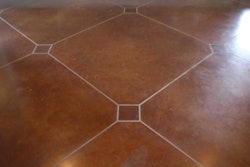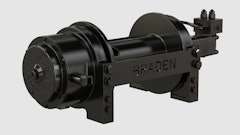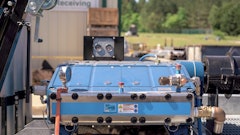Editor's Note: On Sept. 30, 2009, the U.S. Court of International Trade ordered the Department of Commerce to issue antidumping duty orders and collect cash deposits on diamond sawblades and related parts from the People's Republic of China and the Republic of Korea. This was done in response to a petition for a writ of mandamus from petitioners in the antidumping duty investigation. As a result of this ruling, the Department of Commerce will direct the U.S. Customs and Border Protection to suspend liquidation and collect cash deposits on diamond sawblades from China and Korea effective retroactively to Jan. 23, 2009.
There is much contention in the industry regarding the petition and resulting order. Following is an opinion written by Brian Delahaut, president of MK Diamond Products. The views expressed here are those of Mr. Delahaut's and do not necessarily express those of Rental Product News.
The U.S. antidumping policy as it relates to diamond blades has strayed from its original purpose of guarding against predatory foreign firms. It is now little more than an excuse for industries to shield themselves from competition - at great cost to both American consumers and American business.
On September 30, 2009, the U.S. Court of International Trade (CIT) ordered the Department of Commerce to begin collection of cash deposit for imported diamond blades manufactured in China and/or Korea. These cash deposits are to be retroactive back to January 23, 2009. What is important to note is that these cash deposits range from 2.82 to 164.09 percent, depending on the supplier and the country of origin.
Given the current economonic downturn and resulting slowdown in the construction industry, how these cash deposits collected on diamond blades benefit the consumers and American business is questionable. The petitioners* who brought this challenge claim the collection of these cash deposits will guarantee that prices for diamond blades in the U. S. will be competitive and fair. But such rhetoric bears little relation to the current economic reality. Rather than promoting fairness and competition, the cash deposits only work to increase costs associated with the use of these products.
What is especially perverse is that the impact of these antidumping cash deposits will fall most harshly on a construction industry that has suffered the most in these severe economic times. Competition from products that are produced by these foreign companies has provided the construction industry over the years with highly competitive prices that have made these tools both affordable to the professional contractor and accessible to the average consumer. Now as a result, the cost of these tools will move up sharply with no real benefit in performance or value.
One of the curious things that the petitioners will not give comment to is that the U.S. manufacturers of diamond blades will surely be the beneficiary of these higher prices, given the limited U.S. manufacturing capability for all kinds and sizes of diamond blades. In fact, very few manufacturers in the U.S. have the production capacity to produce the variety of diamond blades currently supplied by companies from China and Korea. In addition, there are many more buyers of diamond blades in the United States than there are producers - and consumers will end up paying significantly more than they should. Competitive pricing will no longer be at the forefront of these products as these cash deposits take effect.
The foundation of free trade has benefited both the world and U.S. economy by pushing countries to specialize in the goods and services they produce most efficiently. Just as a consumer benefits from a sale, each nation benefits from paying less for products it buys on the world market. The collection of cash deposits as imposed by the antidumping order will do little to reduce costs associated with these critically important products used in the construction industry, and will in turn only cause the overall cost of construction to go up with no benefit/value to the consumer.
*Diamond Sawblade Manufacturers' Coalition and its individual members: Blackhawk Diamond Inc., Fullerton, CA; Diamond B Inc., Santa Fe Springs, CA; Diamond Products, Elyria, OH; Dixie Diamond, Lilburn, GA; Hoffman Diamond, Punxsutawney, PA; Hyde Manufacturing, Southbridge, MA; Sanders Saws, Honey Brook, PA; Terra Diamond, Salt Lake City, UT; and Western Saw Inc., Oxnard, CA.



















